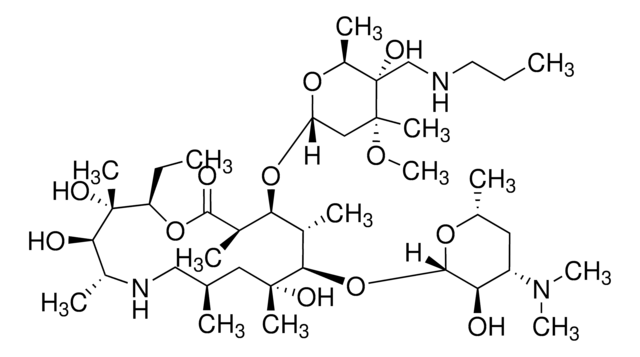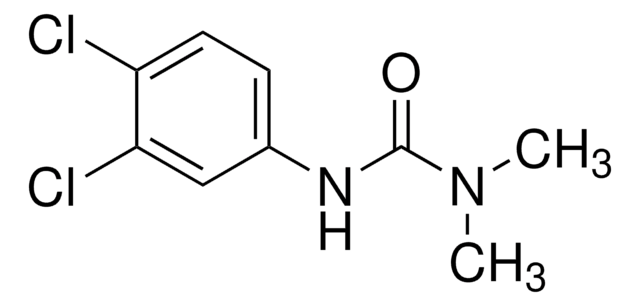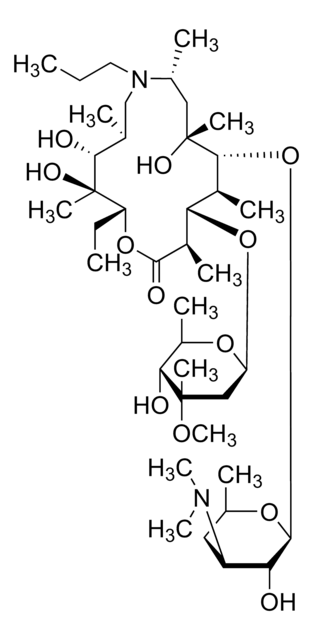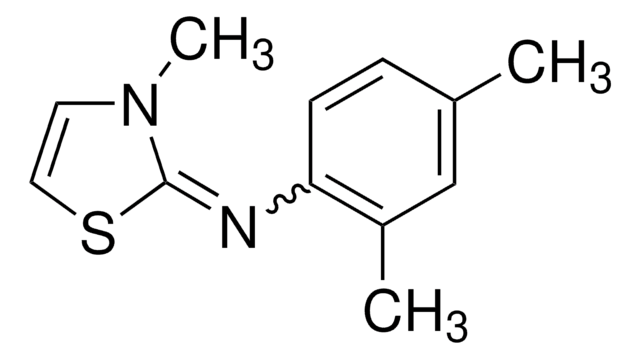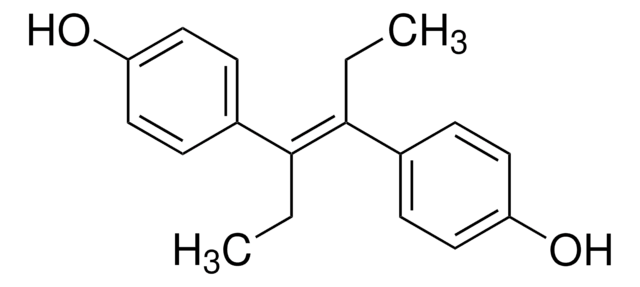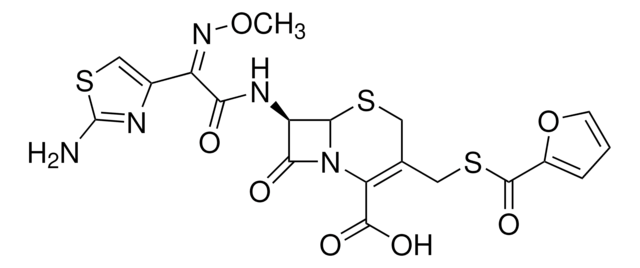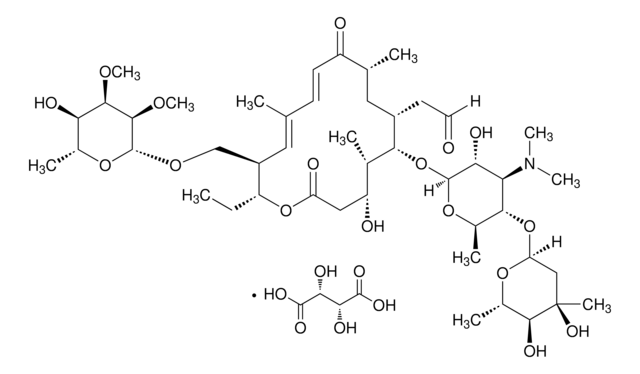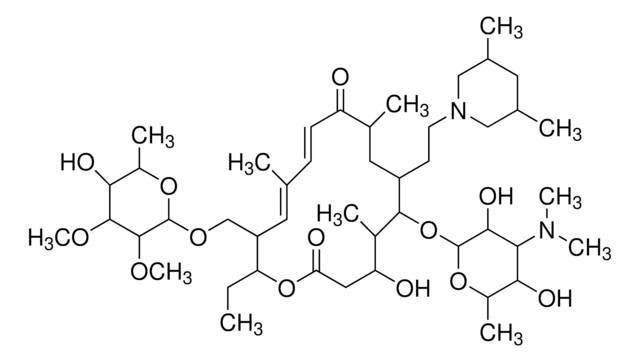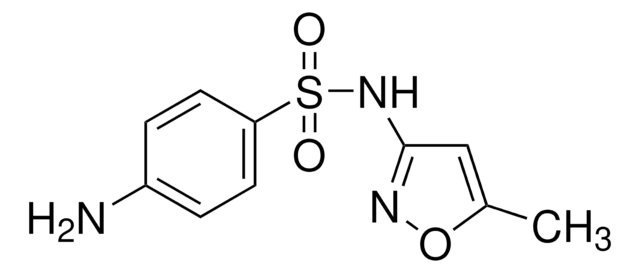46256
Erythromycin A hydrate
VETRANAL®, analytical standard
About This Item
Recommended Products
grade
analytical standard
Quality Level
product line
VETRANAL®
shelf life
limited shelf life, expiry date on the label
technique(s)
HPLC: suitable
gas chromatography (GC): suitable
application(s)
clinical testing
format
neat
SMILES string
N([C@@H]1[C@H]([C@@H](O[C@@H](C1)C)O[C@@H]2[C@H]([C@@H]([C@H](C(=O)O[C@@H]([C@]([C@@H]([C@H](C(=O)C(C[C@]2(O)C)C)C)O)(O)C)CC)C)O[C@@H]3O[C@H]([C@@H]([C@@](C3)(OC)C)O)C)C)O)(C)C.O.O
InChI
1S/C37H67NO13.2H2O/c1-14-25-37(10,45)30(41)20(4)27(39)18(2)16-35(8,44)32(51-34-28(40)24(38(11)12)15-19(3)47-34)21(5)29(22(6)33(43)49-25)50-26-17-36(9,46-13)31(42)23(7)48-26;;/h18-26,28-32,34,40-42,44-45H,14-17H2,1-13H3;2*1H2/t18?,19-,20+,21+,22-,23+,24+,25-,26+,28-,29+,30-,31+,32-,34+,35-,36-,37-;;/m1../s1
InChI key
IWGQNYZQLVGGCS-ZKSNWDMWSA-N
Looking for similar products? Visit Product Comparison Guide
Application
Biochem/physiol Actions
Antimicrobial Spectrum: This product acts against both gram-negative and gram-positive bacteria.
Caution
Preparation Note
Legal Information
Storage Class Code
11 - Combustible Solids
WGK
WGK 3
Flash Point(F)
Not applicable
Flash Point(C)
Not applicable
Personal Protective Equipment
Regulatory Listings
Regulatory Listings are mainly provided for chemical products. Only limited information can be provided here for non-chemical products. No entry means none of the components are listed. It is the user’s obligation to ensure the safe and legal use of the product.
JAN Code
46256-BULK:
46256-VAR:
46256-250MG:
Choose from one of the most recent versions:
Certificates of Analysis (COA)
Don't see the Right Version?
If you require a particular version, you can look up a specific certificate by the Lot or Batch number.
Already Own This Product?
Find documentation for the products that you have recently purchased in the Document Library.
Customers Also Viewed
Our team of scientists has experience in all areas of research including Life Science, Material Science, Chemical Synthesis, Chromatography, Analytical and many others.
Contact Technical Service
